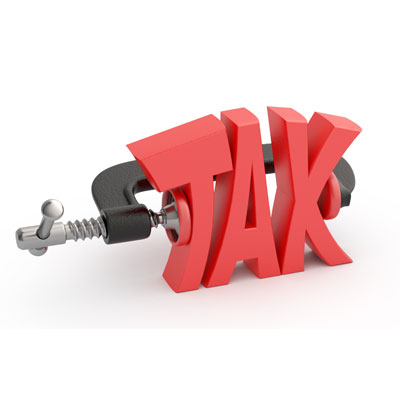
Which Corporations have to file income tax return?
Resident corporations
All corporations who are resident of Canada (except provincial Crown corporations, Hutterite colonies and registered charities) have to file a corporate tax returns (T2 return) for every tax year, even if there is no income or no tax payable.
This also includes the following corporations:
- Non-profit organizations
- Tax-exempt corporations
- Inactive corporations
Non-resident corporations
A Canadian corporation which is a non-resident. Such corporations have to file a corporate tax return if, at any time in the corporation’s fiscal year, one of the following situations applies:
- It carried on business in Canada
- It had a taxable capital gain
- It disposed of taxable Canadian property
A non‑resident Canadian corporation that had a taxable capital gain or disposed of taxable Canadian property does not have to file a return in certain situation.
When to file your corporation income tax return
Corporation file its corporate tax return with in the six months of its tax year end. The tax year of a corporation is its fiscal period. If corporation owe taxes then it must pay tax payable with in the three months of its tax year end to avoid any interest and penalties.
If the corporation’s tax year end falls on the last day of the month then file the corporate tax return not later than the last day of the sixth month.
When the last day of the tax year is not the last day of a month, file the return by the same day of the sixth month after the end of the tax year.
Example
- If your tax year ends December 31, your filing due date is June 30.
- If your tax year ends August 31, your filing due date is February 28 or 29.
- If your tax year ends November 16, your filing due date is May 16.
If the Corporation tax T2 filing deadline falls on a Saturday, Sunday, or public holiday, then CRA will consider the return filed on time if it is sent on the first business day after the filing deadline.
Determining your corporation’s tax year
The corporation’s tax year, also called its fiscal period, cannot be longer than 53 weeks (371 days).
New corporations
You can declare your tax year on your first corporate tax return T2 return after incorporation. Make sure the financial statements you attach to the return match the tax year of the return.
The first day of your tax year (tax year start)
When you file your first corporate tax return T2 return after incorporation, use the date of incorporation as the tax year start date. For all subsequent tax returns, your tax year start will be the day after your tax year-end.
Note:
A professional corporation that is a member of a partnership and carries on business in Canada has to have a tax year ending December 31.
Example
A professional corporation was incorporated on August 25, 2015. It has to have a tax year ending on December 31. Its first tax year will be from August 25, 2015, to December 31, 2015. Its second tax year will be from January 1, 2016, to December 31, 2016.
Any other new corporation may choose any tax year-end as long as its first tax year is no longer than 53 weeks from the date it was either incorporated or formed as a result of an amalgamation.
Example
A corporation was incorporated on August 25, 2015. It chose October 31 as its tax year-end. Its first tax year will be from August 25, 2015, to October 31, 2015. Its second tax year will be from November 01, 2015, to October 31, 2016.
Changing the corporate tax year
Generally, unless you have received approval to change the tax year, the corporation’s tax year is the same from year to year.
To change an established tax year:
- Write a letter to your tax services office asking for approval; and
- Explain the reasons for the change.
However, you do not need approval to change the tax year in some situations, including the following:
- the corporation has wound-up and you are filing its final return with an abbreviated tax year;
- the corporation has to end its tax year at a certain time because it is emigrating to another country, becoming exempt from tax, or ceasing to be exempt from tax; or
- A person or group of persons acquired control of the corporation under section 249(4).
A corporation that becomes bankrupt has to get CRA approval to change its tax year.
